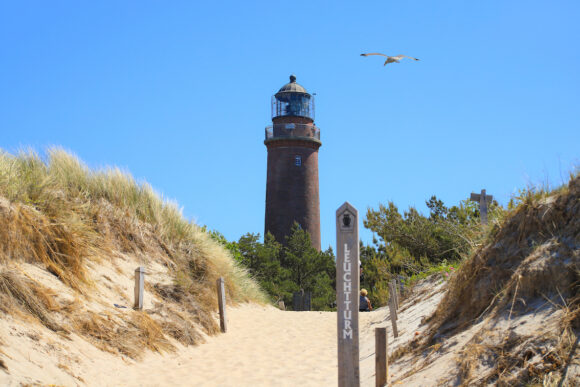Are you a fan of white sand and windswept beaches? Looking for someplace wild and civilized all at the same time, a place that makes you feel like you’re standing on the edge of the world? Then Western Pomerania Lagoon Area National Park may well be what you’re seeking. Germany’s third biggest national park contains the largest nature reserve on the Baltic coast, filled with cliffs, lagoons, incredible dunes, and spits (which are narrow sand formations that snake outward toward the sea). Here are four tips for making your trip to Western Pomerania Lagoon Area National Park a memorable one.
See the park by boat
Since 80% of the park is water, a boat offers a fantastic way to see it. The place is famous for its marine life: it contains endangered species like the common harbor porpoise and the gray seal, and has more than 160 species of birds. Speaking of birds: every August, Western Pomerania Lagoon Area National Park transforms into Europe’s largest roosting spot for cranes. More than 30,000 of the enormous winged creatures arrive every year. The sights – and the sounds – are legendary.
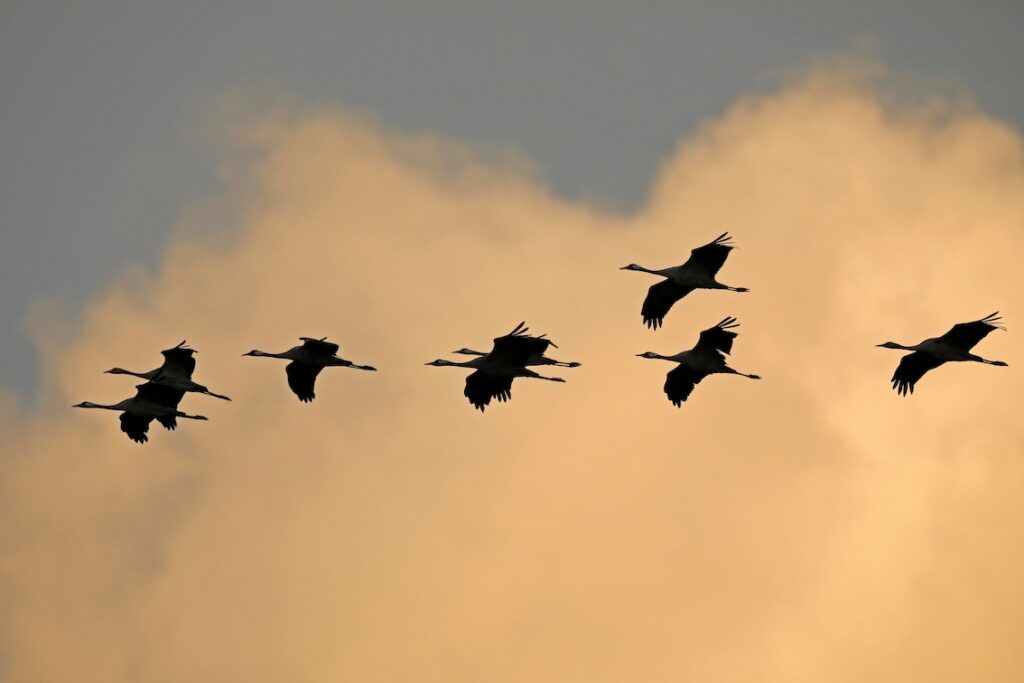 imageBROKER.com / Shutterstock.com
imageBROKER.com / Shutterstock.com There are strict rules on where you can sail, and how close to the shore you can get. But access is allowed in some parts of the park for sailboats and motorboats. The best way to see it, though, is via a kayak tour. It’s an awesome way to spend a few hours, but make sure you pick a day that isn’t too windy!
Walk along the beach and through the woods
Western Pomerania Lagoon Area National Park has no shortage of amazing walking opportunities. Strolling along the Baltic coast is endlessly fascinating. Shells, seaweed, driftwood, random marine creatures washed up on the shore – it’s kind of a wonderland. On stormy days, it’s also amazing. You can feel like a rugged sailor – spitting rain in your face, churning waves, the whole deal – without worrying about being shipwrecked.
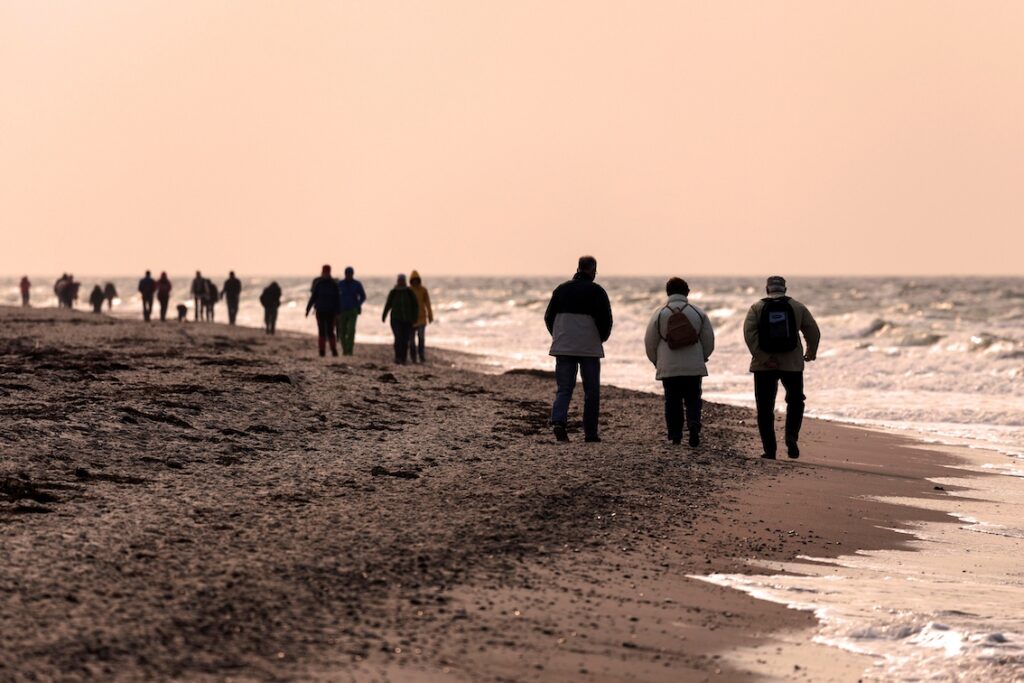 imageBROKER.com / Shutterstock.com
imageBROKER.com / Shutterstock.com There are also many other great walking trails, all of them extremely well sign-posted. Venture deep into the woodlands, where beautiful alder forests grow between sand dunes and swamps. Take a guided tour through the Daras Forest, which is the largest unbroken stretch of forest in the park. You won’t be disappointed.
If you’re looking for a challenge, try the Dornbusch Hiking Trail. Generally regarded as the most difficult trail in the park (and it isn’t that difficult), the loop is just shy of five kilometers and usually takes a bit more than an hour to complete. The views are amazing, as is the bird watching. Dogs are allowed on this trail, but must be kept on a leash.
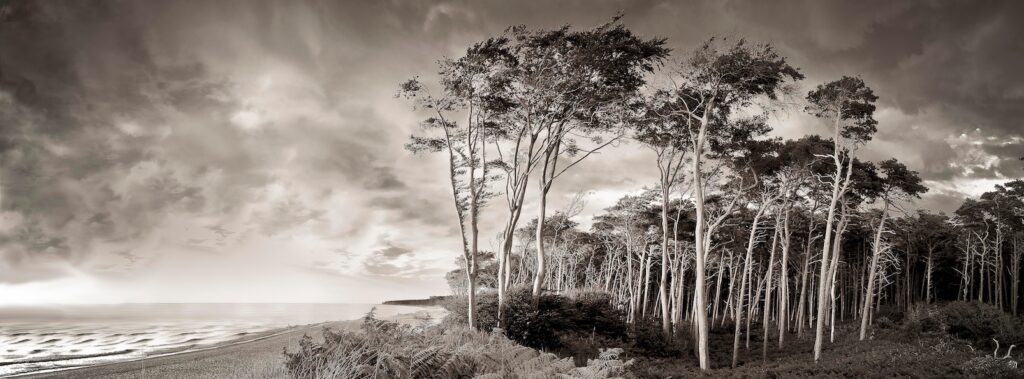 imageBROKER.com / Shutterstock.com
imageBROKER.com / Shutterstock.com Go fishing on one of the park’s many beaches
If you like to fish, you’ll love Western Pomerania Lagoon Area National Park. If you’re not into fishing, then this is a good place to give it a go! The best part? You have a real shot at never catching the same type of fish twice. The park contains nearly 50 species of fish, which reflects the diversity of the environment: there are many different currents, water depths, water temperatures, and salt levels.
In logical German fashion, catch and release fishing is prohibited. If you catch something, you need to be prepared to make a meal out of it. So bring cooking equipment, too! Or at least a cooler to transport your dinner back to your kitchen.
Watch the world go by at one of the park’s renowned vantage points
Sunsets (as long as the clouds cooperate) do not disappoint at Western Pomerania Lagoon Area National Park. Sunrises are too. Sometimes, the clouds put on amazing shows. You could do worse than to just spend an hour or two watching the world go by at the park.
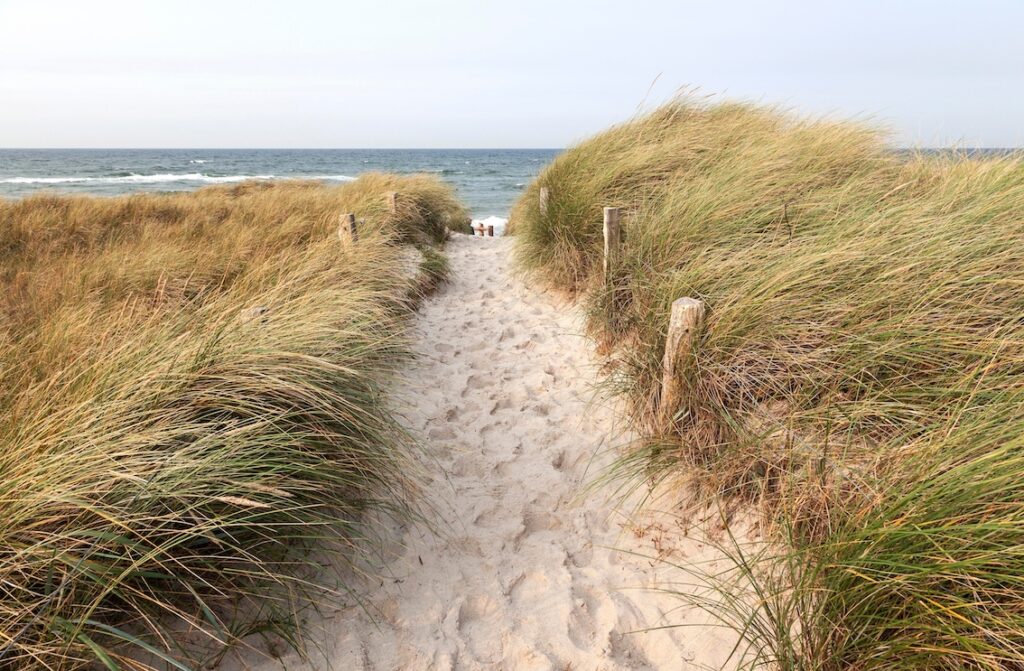 imageBROKER.com / Shutterstock.com
imageBROKER.com / Shutterstock.com The first great place to do this is Pramort. This jaw-dropping series of sand dunes (more than 40 feet high, in some places) has observation decks to protect the fragile vegetation that grows in the dunes. The Höhe Dune, which is the largest unforested dune field on the Baltic coast, is even cooler. Follow the wood walkways to observation decks and just take in the scenery as you walk. An unforgettable experience.
Getting to Western Pomerania Lagoon Area National Park
By car, the park is approximately 8 hours from Kaiserslautern and Stuttgart, and just over 7 hours from Wiesbaden.
Featured image by Ina Meer Sommer / Shutterstock.com

